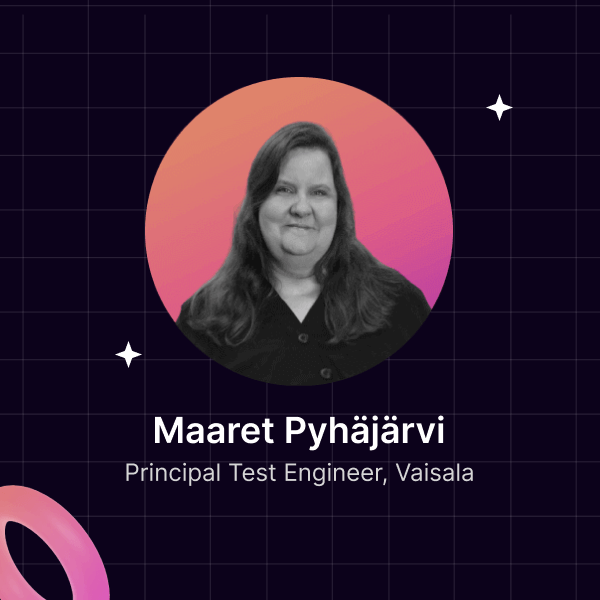
Listen to Maaret Pyhäjärvi talk on Let's do a Thing and Call it Foo
The free online Testµ (TestMu) conference by LambdaTest will talk about trends that matter in the testing landscape and will help testers & developers get a glimpse into the future of testing. Over 30+ speakers including community leaders and leading industry experts will join the event to share their thoughts.
More about the speaker
Maaret Pyhäjärvi is an exploratory tester extraordinaire with a day-job at Vaisala as Principal Test Engineer. She is an empirical technologist, a tester and a (polyglot) programmer, a catalyst for improvement, a speaker and an author, and a community facilitator. She has been awarded the two prestigious global testing awards, Most Influential Agile Testing Professional Person 2016 (MIATPP) and EuroSTAR Testing Excellence Award (2020), and selected as Top-100 Most Influential in ICT in Finland 2019, 2020 and 2021 and awarded Tester Worth Appreciating Award in Finland 2022 . She's spoken at events in 25 countries delivering over 400 sessions.
With 25 years of exploratory testing under her belt, she crafts her work role into a mix of hands-on testing and programming, and leading and enabling others. She leads TechVoices, enabling new speakers, blogs at https://visible-quality.blogspot.fi, and is the author of three books: Ensemble Programming Guidebook, Exploratory Testing, and Strong-Style Pair Programming.
About the Talk
Let's do a Thing and Call it Foo
It feels like the world of testing has gone absurd over words and definitions, and as a testing practitioner building products, what I really care for is results and learning. So let's do a thing of testing, and call it Foo until we have a shared experience.
What Foo looks like is that we'll take computer-assisted software authorship as our developer, write a comment and get to an implementation. As the human pair programmer, we're probably going to be held accountable for results when we pass that forward. Foo is what allows us to be accountable. Not just on the correctness of implementation but our program fitting the domain it is created for.
Having done Foo, we have:
We learn that there are 5 layers of oracles we can choose to apply, and from our example can take ideas of how to apply those further. So how to Foo like you meant it? Let's conclude with ways of turning up the Foo.
Key takeaways:
